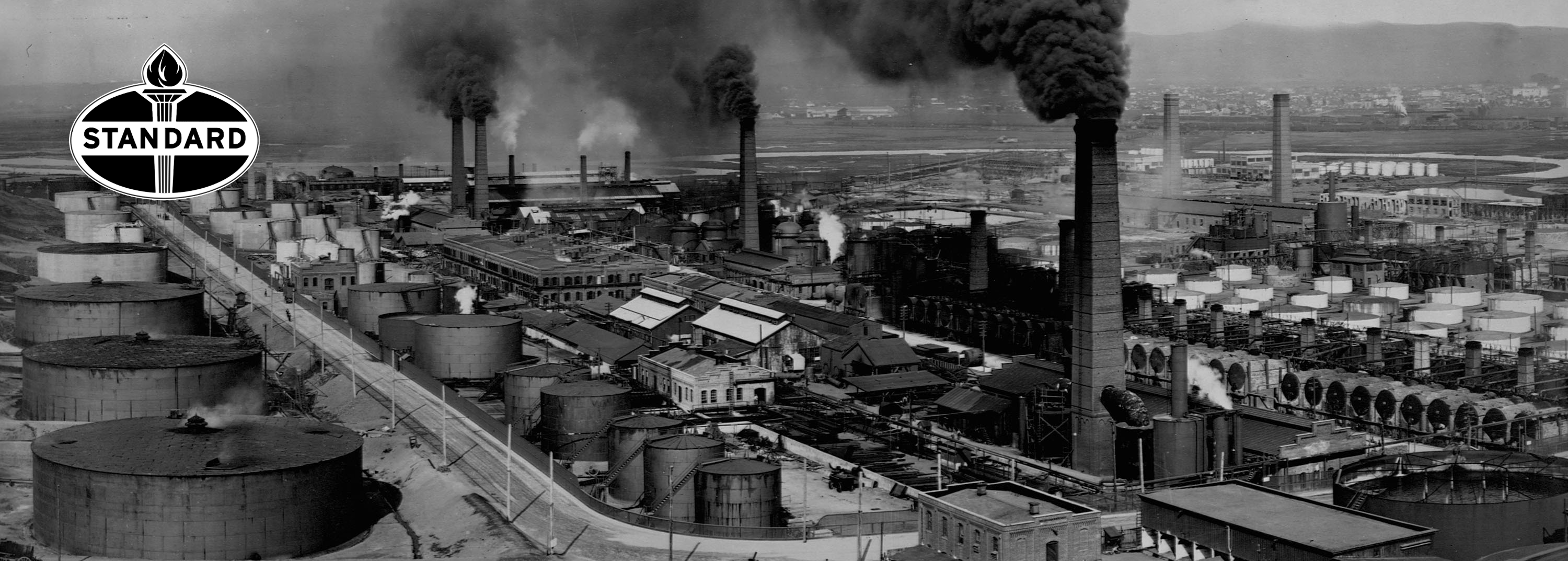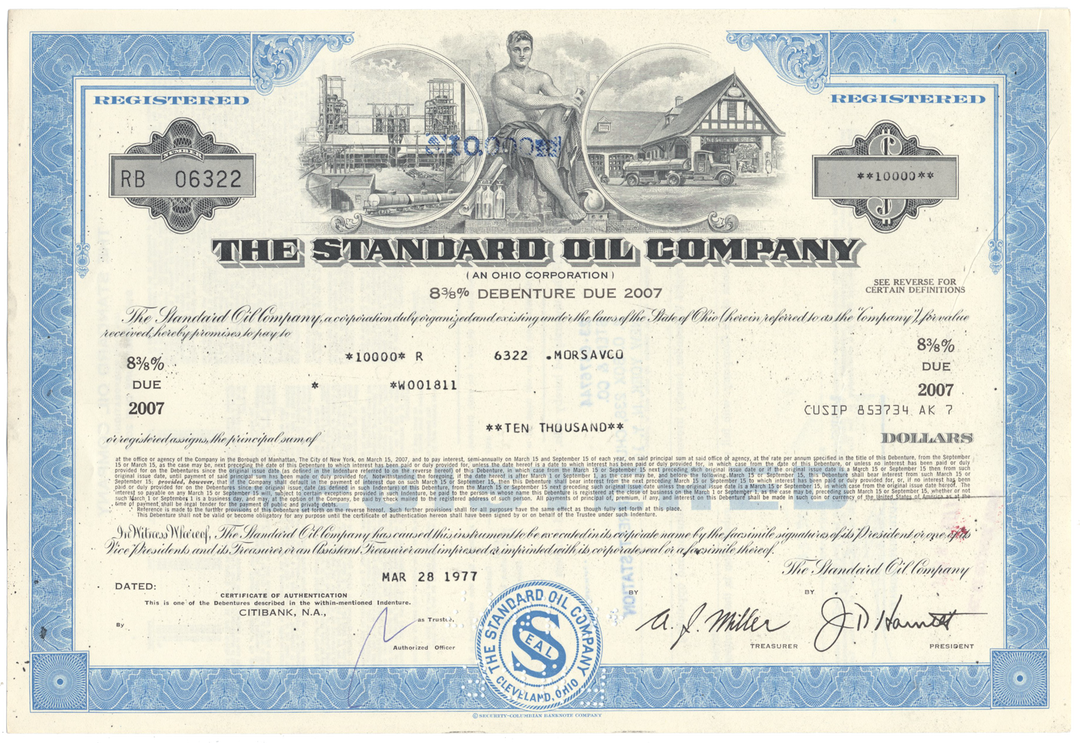
Standard Oil was a large, integrated, oil producing, transporting, refining, and marketing company. Standard Oil began as an Ohio partnership formed by the well-known industrialist John D. Rockefeller, his brother William Rockefeller, Henry Flagler, chemist Samuel Andrews, and a silent partner Stephen V. Harkness. Using highly effective and widely criticized tactics, Standard Oil absorbed or destroyed most of its competition in Cleveland, Ohio, then throughout the northeastern United States, putting numerous small corporations out of business.
In response to state laws attempting to limit the scale of companies, Rockefeller and his partners had to develop innovative ways of organizing so that they could effectively manage their increasingly giant enterprise. In 1882, they combined their disparate companies, spread across dozens of states, under a single group of trustees. This organization proved so successful that other giant enterprises adopted this "trust" form. At the same time, state and federal laws sought to counter this development with "antitrust" laws.
Ohio successfully sued Standard Oil, compelling the dissolution of the trust in 1892. Standard Oil fought this decree, in essence separating off only Standard Oil of Ohio without relinquishing control of that company. Eventually, New Jersey changed its incorporation laws to allow a single company to hold shares in other companies in any state. Thus, in 1899, the Standard Oil Trust was legally reborn as a holding company -- a corporation known as the Standard Oil Company of New Jersey.
Eventually, the U.S. Justice Department sued Standard Oil of New Jersey under the federal anti-trust law, the Sherman Antitrust Act of 1890. In 1911, the Supreme Court upheld the lower court judgment, and forced Standard Oil to separate into 34 companies, each with its own distinct board of directors. Standard's president, John D. Rockefeller had, by then, long since retired from any management role and became simply a shareholder in each of the new companies.
They formed the core of today's U.S. oil industry, including ExxonMobil (formerly Standard of New Jersey and Standard of New York), ConocoPhillips (the Conoco side, which was Standard's company in the Rocky Mountain states), Chevron (Standard of California, who eventually purchased Standard Oil of Kentucky), Amoco and Sohio (Standard of Indiana and Standard of Ohio, respectively, now BP of North America), Atlantic Richfield (the Atlantic side, now also a part of BP North America), Marathon (covering western Ohio and other parts of Ohio not covered by Sohio) and many other smaller companies.







